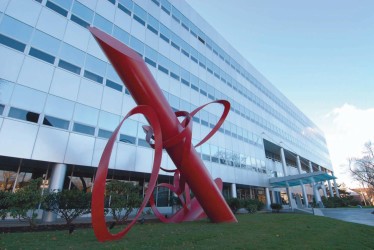There’s Two Sides to Every Story!
While there are two sides to every story, I am happy to share this important information with you. You can now determine if you feel you have been green-washed, and how you can live your own version of a “green and sustainable” lifestyle.
Non-Profit Initiates Next Stage of Its Mission to Stop Green-washing
Two Sides Urges Leading U.S. Companies to End Misleading Claims About Print and Paper
On March 12, 2013 in CHICAGO,IL (via Marketwire) – Two Sides today announced the next stage of its nationwide initiative to urge major U.S. banks, utilities and telecommunication companies to end the use of misleading marketing claims about the sustainability of print and paper. Phase Two will include a second round of communication intended to initiate productive discussion with CEOs and senior management in the target industries, reminding them of their responsibility to adhere to best practices for environmental marketing as outlined in the U.S. Federal Trade Commission’s recently revised Green Guides.
Last year, Two Sides contacted senior bank, utility and telecom executives, encouraging them to follow the yet-to-be-released FTC Green Guides, which say that environmental marketing claims should not exaggerate environmental impacts and must be substantiated. While some responded positively, many of the nation’s top banks, utilities and telecoms continue to tell their customers that switching to online billing and communication is better for the environment than print and paper with no verifiable supporting evidence. With the release of the updated Green Guides in October 2012, the FTC made it official that unqualified environmental language would be viewed as deceptive marketing, strengthening the Two Sides call for change.
Two Sides has NO desire for negative publicity
“Two Sides has no desire to cause unnecessary negative publicity for these companies or to undermine their cost-saving and efficiency reasons for driving customers towards e-billing, but claims that print and paper are environmentally unfriendly need to stop,” says Two Sides President Phil Riebel. “Rather than call these respected companies out publicly with greenwashing complaints to the FTC, we’d much prefer to amicably work with them behind the scenes to help develop messaging that meets the Green Guides standards for environmental marketing,” he says. “However, we’re prepared to use the strongest means necessary to put an end to the use of unsupported environmental claims that are potentially damaging to the paper, printing and mailing sectors which support millions of U.S. jobs.”
Two Sides conducted a similar campaign to get companies in the United Kingdom to drop or revise unsupported environmental claims about printed media with great success. More than 80 percent of the U.K. companies approached — including well-known names like British Telecom, Barclaycard, Vodafone and EON Energy — worked with Two Sides to eliminate misleading or factually incorrect environmental claims about the use of print and paper.
Two Sides states that print and paper have their own story to tell
“The fact is, print and paper products made in the U.S. have a great environmental story to tell,” Riebel says. “Paper comes from a renewable resource — trees grown in responsibly managed forests — and it’s recycled more than any other commodity, including plastics, metals and glass. The continuing demand for sustainably sourced paper gives U.S. landowners a financial incentive to continue managing their lands responsibly and keep them forested rather than selling them for development,which is the number one cause of deforestation in the United States. Thanks in great part to the sustainable forestry practices advanced by the paper and forest products industry, the volume of growing trees in U.S. forests has increased nearly 50 percent over the last half century and the total acres of forestland has remained essentially unchanged for 100 years.”
The direct impact of electronic products and services replacing paper is far from negligible, and the trade-offs between the two depends on how often we use the different technologies and how we dispose of the products. Both electronic and print media are important, and both have environmental impacts that must be taken into consideration.
Electronic communication has a significant and growing carbon footprint due to the energy requirements of a vast worldwide network of servers necessary to store information for immediate access. Electronic communication also relies on significant amounts of fossil-fuel energy and non-renewable raw materials for processing and manufacturing. With electronic waste becoming the fastest growing waste stream in the world and related environmental and health concerns escalating rapidly in many countries, promoting “going paperless” as the best environmental choice is unfounded.
It’s also important to note that equating electronic billing and statements with “going paperless” is misleading. When traditional bills and statements are converted to electronic communication, much of that paper is replaced by home or office printing by those who prefer or require a permanent hard copy. Furthermore, a recent study by NACHA, the Electronic Payments Association, showed that up to 40 percent of consumers receive both electronic and paper statements.
“Some of the major U.S. companies in the financial, telecom and utility sectors are to be commended for implementing sustainability initiatives that focus on true performance measurement and factual environmental claims, but others are lagging behind in terms of credible messaging,” Riebel says. “Two Sides is committed to help change this, and our experience to date shows that we’ve been successful in finding mutually acceptable solutions.”
About Two Sides
Two Sides is an independent, non-profit organization created to promote the responsible production, use and sustainability of print and paper. Started in Europe in 2008, Two Sides is now active in more than 12 countries. The organization has more than 1,000 members that span the entire print and paper supply chain, including pulp and paper producers, paper distributors, ink and chemical manufacturers, printers, equipment manufacturers and publishers. For more information about Two Sides, visit the Two Sides website at www.twosides.us. Together we are working toward greener tomorrows.




















